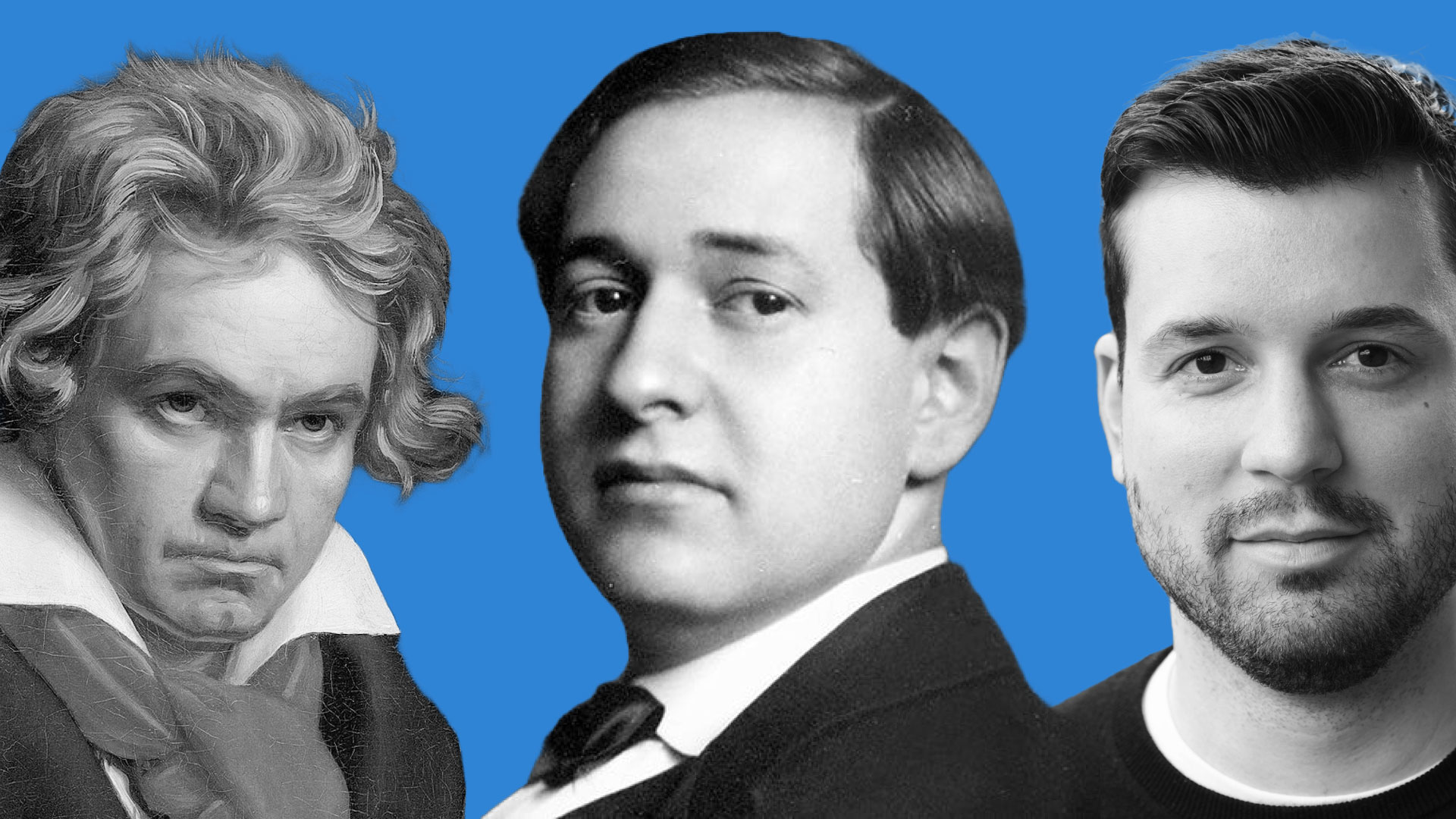Music writer Alison Wormell explores the music of Vanguard. This program of music by Beethoven, Korngold and Harry Sdraulig tours Australia 18 June—5 July.
Historically ‘vanguard’ was a term for the leading members of an army’s attack, but the word has come to refer to people who are leaders in the development of new ideas. This concert draws together three composers who are considered at the forefront of their fields to present a ‘vanguard’ of string quartet writing. Beethoven, Korngold and Harry Sdraulig each bring something individual to the program in their landmark works.
Ludwig van Beethoven’s (1770-1827) music is familiar to many people; his Ninth Symphony (1824), which culminates in an awe-inspiring choral rendition of ‘Ode to Joy’ is one of the most enduringly famous works ever written. The next work the German composer published was his String Quartet No.12 in E-flat Major, Op.127 (1825). Beethoven’s first quartet in fifteen years, this piece and the following four quartets written in the two years prior to his death are often considered to be Beethoven’s greatest work, trumping even his symphonies!
His twelfth quartet opens with immediate intensity, the ensemble united in rhythmic unison. The atmosphere quickly softens into a sweet melody in the first violin and the movement continues oscillating between these two characters. The second movement is the longest, and is a theme and variations. The theme is a tender lullaby that goes through four different iterations including a very jaunty episode, before returning to wrap up the movement. The scherzo that follows tosses around playful dotted (or skipping) rhythms with a silky smooth trio interlude in the centre of the movement. Beethoven closes the quartet with a bustling fourth movement. Listen out for gossiping interjections in the lower strings!
From the oldest to the newest work on the program, Harry Sdraulig’s (b. 1992) String Quartet No.2 (2024) is his most recent work in a long line of commissions from ensembles Australia-wide. Sdraulig is influencing modern Australian music by combining inspiration from post-romantic 20th century music with distinctively Australian harmonies and gestures, and this piece is a continuation of this mesmerising compositional output.
Sdraulig’s second string quartet opens ethereally with pulsing harmonics and twitching violin motifs that slowly develop into rustling whispers under an expressive cello melody. There’s a sense of curiosity and exploration that explodes into a fast scherzo which is simultaneously groovy, sinister and jolly. The violins share combative outbursts with the players’ parts knitting together into complex melodies. Gradually, the energetic music evaporates into a viola solo that heralds the restful third section. Sdraulig wraps up this brief but involved work with an expansive yet energetic finale that brings back snippets of the music we heard in the first three sections.
Since Sdraulig draws from 20th century music, it’s lovely to present his new quartet alongside the second string quartet of Austrian composer Erich Wolfgang Korngold (1897-1957). Korngold is famous for his pioneering work in Hollywood film music but this quartet dates from just before he moved to the USA in 1934. Despite this, it’s possible to imagine all sorts of on-screen scenarios whilst listening, and it’s clear how his extraordinary concert music still influences film music today.
Korngold’s String Quartet No.2 (1933) opens with three fast notes leading into a long note. Take note of this, as the first movement is based on this motif. The second movement evokes any number of classic scenes from film; we return after a fanfare-like middle section to its opening theme before the similarly evocative third movement. This movement opens with harmonics which creates a spooky atmosphere, and develops in a solemn but tender and singing manner. The finale is a waltz that starts haltingly before sinking into a warm, swinging dance.
© Alison Wormell 2024
ABOUT THE AUTHOR
Alison Wormell (they/them) is a music writer whose work focuses on demystifying classical music. Alison has written for Gramophone’s Opera Now Magazine, Southbank Sinfonia, Australian String Quartet, Lapland Chamber Orchestra, Australian Youth Orchestra, Cut Common Magazine, and Things Musicians Don’t Talk About.
